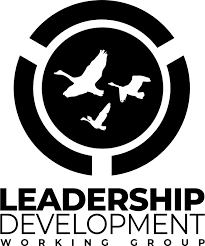Leadership development is a critical component of organizational success. It encompasses the deliberate efforts and strategies employed to identify, cultivate, and empower individuals to assume leadership roles within an organization. In a rapidly evolving and complex business landscape, the ability to nurture and groom effective leaders is paramount. This process not only ensures the continued growth and adaptability of an organization but also paves the way for a sustainable future built upon capable, visionary leadership.
1. Identifying Leadership Potential:
Leadership development begins with the identification of individuals who possess the potential to be effective leaders. These are the individuals who demonstrate exceptional problem-solving skills, the ability to inspire and motivate others, and a strong sense of purpose and vision. Through assessments, feedback, and observation, organizations can pinpoint those with the qualities and attributes required for leadership roles.
2. Mentorship and Coaching:
Once potential leaders are identified, mentorship and coaching become pivotal tools for their development. Experienced leaders within the organization can provide guidance, share their insights, and offer support as emerging leaders navigate their roles and responsibilities. Mentorship relationships foster a transfer of knowledge and wisdom that is essential for leadership growth.
3. Leadership Training Programs:
Leadership training programs are a cornerstone of leadership development. These programs provide aspiring leaders with the necessary knowledge and skills to excel in their roles. They often cover topics such as communication, strategic thinking, conflict resolution, decision-making, and emotional intelligence. These skills are essential for leaders to thrive in the dynamic and demanding business environment.
4. On-the-Job Experience:
Practical experience is a critical component of leadership development. Aspiring leaders need opportunities to put their knowledge and skills into practice. Organizations can provide challenges, projects, or assignments that allow individuals to develop their leadership abilities in real-world scenarios. This hands-on experience hones their decision-making, problem-solving, and interpersonal skills.
5. Feedback and Evaluation:
Continuous feedback and evaluation are fundamental to leadership development. Aspiring leaders should receive regular assessments and performance reviews that highlight their strengths and areas for improvement. Constructive feedback empowers individuals to refine their leadership styles and make necessary adjustments to excel in their roles.
6. Leadership Styles and Diversity:
Leadership development programs should recognize and embrace the diversity of leadership styles. Effective leaders come in various forms, from visionary and charismatic leaders to quiet, empathetic, and servant leaders. Leadership development should be flexible and adaptable to accommodate different styles and approaches, fostering a culture of inclusive leadership.
7. Encouraging Innovation and Risk-Taking:
Innovation and risk-taking are essential attributes for leaders in a rapidly changing world. Leadership development should encourage individuals to think creatively, challenge the status quo, and take calculated risks. Cultivating a culture of innovation can empower leaders to adapt to new challenges and opportunities.
8. Ethical Leadership:
Ethical leadership is an integral component of leadership development. Aspiring leaders should understand the importance of ethics, integrity, and values in their decision-making and actions. This ensures that leaders act responsibly and inspire trust among their teams and stakeholders.
9. Adaptability and Resilience:
Leadership development should also focus on building adaptability and resilience. The modern business landscape is characterized by uncertainty and volatility. Leaders need to be equipped with the skills and mindset to navigate change and setbacks with grace and determination.
10. Leadership for the Greater Good:
Leadership is not just about achieving business goals; it’s also about making a positive impact on society and the world. Leadership development should instill a sense of responsibility to contribute to the greater good, whether through sustainable business practices, social initiatives, or community engagement.
In conclusion, leadership development is a dynamic and multifaceted process that is indispensable for the growth and sustainability of organizations. It involves identifying potential leaders, providing mentorship and coaching, offering structured training programs, enabling on-the-job experience, and fostering a culture of feedback and evaluation. Effective leadership development not only equips individuals with the necessary skills and knowledge but also instills the values, ethics, and adaptability required to lead in a rapidly changing world. It’s a process that paves the way for the emergence of visionary leaders who can guide organizations towards success and make a positive impact on the world.
Check out Team Academy for more information.





